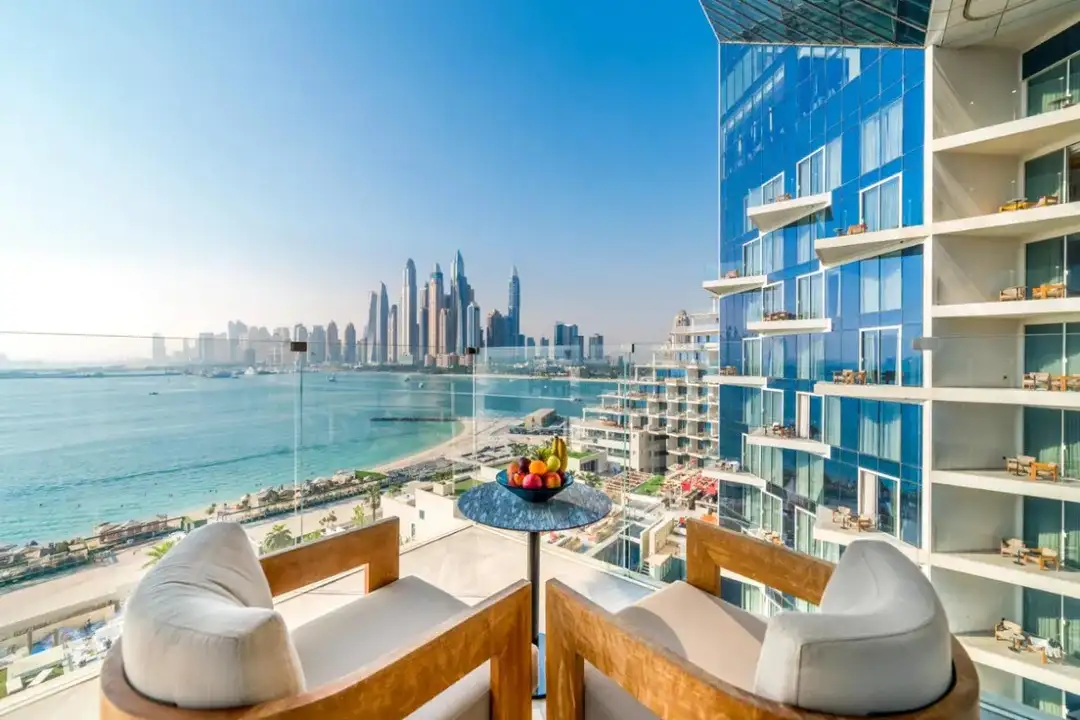Who Can Buy Property in Dubai?
Dubai’s real estate market is open to a wide range of buyers, including expatriates, foreign nationals, and non-residents. Since 2002, the Dubai government has allowed foreign ownership in designated freehold areas, which makes it possible for individuals from around the world to invest in property within these zones. These freehold areas include some of the most prestigious communities in Dubai, such as Downtown Dubai, Dubai Marina, and Palm Jumeirah.
Legal Framework for Foreign Property Ownership
Foreign buyers are subject to a clear legal framework in Dubai, designed to make the buying process straightforward while protecting the rights of both buyers and sellers. The purchase of freehold properties for non-residents is governed by Dubai's property laws, overseen by the Dubai Land Department (DLD) and regulated by the Real Estate Regulatory Agency (RERA).
Key Legal Protections Include:
- Full Ownership: Foreigners can buy, sell, lease, and inherit freehold property in Dubai, with full rights over the land and building.
- Government Oversight: The DLD ensures that all transactions are documented and that property ownership is secured by issuing title deeds.
- Transparency: RERA enforces regulations to protect buyers, ensuring that developers and agents meet legal obligations and maintain transparency throughout the buying process.
Step-by-Step Guide to Buying Property in Dubai
Purchasing property in Dubai follows a structured process, from selecting a property to registering the ownership. For foreign buyers, it’s essential to understand each step to ensure a smooth transaction.
- Choose a Freehold Property
- The first step is selecting a property within a designated freehold zone. Buyers can choose between off-plan (under construction) or ready-to-move-in properties. It’s advisable to work with a licensed real estate agent to find the best property that fits your requirements.
- Verify the Developer
- If purchasing an off-plan property, verify that the developer is registered with RERA. This protects buyers from potential delays or issues in project completion.
- Negotiate and Sign the Agreement
- Once you’ve selected a property, the buyer and seller (or developer) sign a Memorandum of Understanding (MOU). The MOU outlines the agreed sale price, terms of the sale, and a 10% down payment is usually required from the buyer to secure the property.
- No Objection Certificate (NOC)
- The seller must obtain a No Objection Certificate (NOC) from the developer to proceed with the transfer of ownership. The NOC confirms that there are no outstanding payments or issues with the property.
- Transfer of Ownership at Dubai Land Department (DLD)
- The buyer and seller will then visit the DLD office to officially transfer ownership. At this point, the buyer must pay the remaining amount and cover the DLD registration fee, which is typically 4% of the property’s value. Once the transaction is complete, the buyer is issued a title deed, confirming legal ownership of the property.
- Mortgage Registration (if applicable)
- For buyers who require financing, Dubai allows foreign investors to obtain mortgages from banks. If a mortgage is involved, it must be registered with the DLD, and buyers should ensure that they meet the bank’s eligibility criteria, such as income level and credit history.
-
Financial Considerations and Fees
While the process of buying property in Dubai is straightforward, there are several costs and fees that foreign buyers should be aware of. In addition to the property price, buyers need to factor in registration and administrative fees.
Key Fees Include:
- DLD Registration Fee: 4% of the property value.
- Agent Commission: Typically around 2% of the purchase price.
- NOC Fee: Paid by the seller to the developer, usually around AED 500 to AED 5,000.
- Mortgage Fees: If applicable, additional costs include mortgage registration fees (0.25% of the loan amount) and bank processing fees.
-
Understanding these costs is essential for ensuring that your budget covers both the purchase price and the associated fees.
Legal Documents Required
Foreign buyers need to provide certain documentation to complete a property purchase in Dubai. These documents ensure that the buyer’s identity and financial eligibility are verified before the transaction can be finalized.
Documents Needed:
- Passport Copy: A valid passport is required for identification purposes.
- Visa Copy: If the buyer is a resident, a copy of the residence visa is necessary.
- Proof of Address: A utility bill or bank statement showing the buyer’s current address.
- Proof of Income: For buyers applying for a mortgage, banks will require proof of income, such as salary certificates or tax returns.
-
Having these documents ready will speed up the process and ensure that the transaction proceeds without delays.
Property Registration and Title Deeds
After the purchase is completed, the Dubai Land Department issues a title deed in the buyer’s name. This title deed is proof of ownership and is an important legal document that confirms the buyer’s rights to the property.
What the Title Deed Includes:
- The name of the property owner.
- Details of the property (location, size, type).
- Any mortgage or legal encumbrances associated with the property.
-
It’s crucial to keep the title deed in a safe place, as it is needed for any future sale, lease, or legal actions involving the property.
Protecting Your Investment: Legal Safeguards
Dubai has established robust legal frameworks to protect foreign buyers, making the city one of the most secure places to invest in real estate. Both RERA and the DLD enforce strict guidelines to ensure that developers and agents operate transparently, providing peace of mind for investors.
Key Protections for Buyers:
- Developer Accountability: Developers must adhere to RERA’s regulations and meet project milestones, especially for off-plan developments.
- Escrow Accounts: For off-plan properties, developers are required to use escrow accounts, ensuring that buyer payments are protected and only released when specific project milestones are met.
- Dispute Resolution: In case of disputes between buyers and developers or agents, the DLD provides mediation and legal channels to resolve issues.
-
These safeguards ensure that foreign buyers can invest confidently in Dubai’s real estate market.
Conclusion: Buying Property in Dubai is a Transparent and Secure Process
For foreign buyers, Dubai offers a secure and transparent environment to purchase property. With clear legal guidelines, straightforward processes, and robust government oversight, buying property in Dubai is both accessible and advantageous. Whether you're seeking a luxury home or a solid investment, understanding the legal requirements and processes will ensure a smooth transaction.
Ready to Own a Piece of Dubai?
Whether you dream of a luxury apartment or a beachfront villa, buying property in Dubai has never been easier. Let Gaia Living Real Estate guide you through every step of the process. Contact Us today and turn your dream into reality with the expertise that ensures a smooth and successful investment in this vibrant city!





%20(1).webp)
